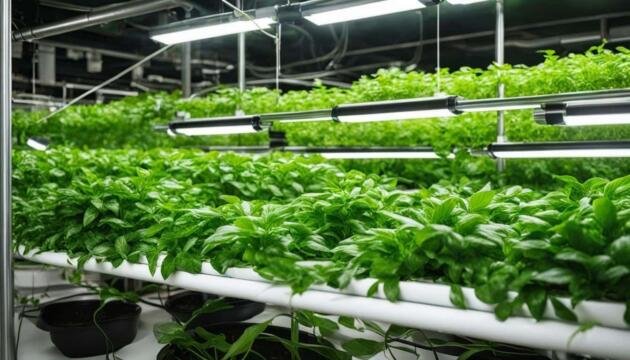3 Budget-Friendly Zero-Waste Cleaning Routines

Switching to these zero-waste cleaning routines can save you money, protect your health, and reduce your environmental impact. Conventional cleaning products often contain harmful chemicals and are packaged in non-biodegradable materials. By making simple changes to your cleaning tools, products, and room-specific cleaning, you can create zero-waste cleaning routines that are better for your wallet, your health, and the planet.
Key Takeaways:
- Creating zero-waste cleaning routines can help you save money and protect your health.
- Switching to eco-friendly cleaning products reduces your environmental impact.
- Essential tools for a zero-waste cleaning routine include reusable and plastic-free options.
- DIY cleaning products using simple ingredients can replace store-bought cleaners.
- Room-specific cleaning tips help you maintain a zero-waste routine in every area of your home.
Essential Tools for a Zero-Waste Cleaning Routine
Creating 3 zero-waste cleaning routines requires the right tools. By switching to reusable and plastic-free cleaning tools, you can effectively clean your home while reducing your environmental impact. Here are some essential tools to consider:
1. Feather Dusters (preferably second-hand)
Feather dusters are a great alternative to disposable dusting cloths. Look for second-hand options to reduce waste. They are effective at capturing dust and can be easily cleaned and reused.
2. Reusable Towels made from 100% Cotton
Furthermore, investing in high-quality towels made from 100% cotton is a smart choice. They are durable and versatile, suitable for a variety of cleaning tasks, including wiping surfaces and drying dishes. After use, simply wash them, and you can continue to reuse them, helping to minimize waste and save money in the long run.
3. Bamboo Dish Scrubs
Replace your plastic dish scrubs with eco-friendly bamboo dish scrubs. They are biodegradable, durable, and effective at removing stuck-on food particles. After use, simply rinse and air dry.
4. Wooden Hand Brooms and Metal Dust Pans
Instead of using disposable brooms and dustpans, opt for wooden hand brooms and metal dustpans. These tools are long-lasting and can easily sweep away dirt and debris. They can be cleaned and used repeatedly, reducing the need for replacements.
5. Wooden Toilet Brushes
Avoid plastic toilet brushes that contribute to waste. Choose wooden toilet brushes with natural bristles. They are sustainable, effective at cleaning, and can be composted at the end of their lifespan.
6. Plastic-Free Mops
Traditional mops often come with plastic components and disposable mop heads. Look for plastic-free mops made from sustainable materials such as bamboo or stainless steel. They are durable, reusable, and compatible with washable mop pads.
By incorporating these zero-waste cleaning tools into your routine, you can clean your home effectively while reducing waste. Remember to choose durable, reusable, and sustainable options that align with your zero-waste goals.

Table: Examples of Zero-Waste Cleaning Tools
| Tool | Material | Benefits |
|---|---|---|
| Feather Duster | Second-hand feathers | Reusable, captures dust effectively |
| Reusable Towels | 100% cotton | Durable and versatile, reduces paper waste |
| Bamboo Dish Scrubs | Bamboo | Biodegradable, effective scrubbing |
| Wooden Hand Brooms | Wood | Long-lasting, easily sweeps debris |
| Metal Dust Pans | Metal | Durable, collects debris efficiently |
| Wooden Toilet Brushes | Wood, natural bristles | Sustainable, compostable |
| Plastic-Free Mops | Bamboo or stainless steel | Durable, compatible with washable pads |
With these tools and a commitment to zero-waste cleaning, you can maintain a clean and eco-friendly home environment.
Section 3: DIY Cleaning Products for a Zero-Waste Routine
One of the key aspects of creating a zero-waste cleaning routine is using homemade cleaning products. Making your own cleaning products not only allows you to control the ingredients but also eliminates the need for disposable packaging. Plus, it’s a great way to save money and reduce your environmental impact. Here are some simple and effective DIY cleaning recipes that you can try:
All-Purpose Cleaning Spray
An all-purpose cleaning spray is a staple in any cleaning routine. It can be used on various surfaces, including countertops, glass, and stainless steel. To make your own all-purpose cleaning spray, mix equal parts of distilled white vinegar and water in a spray bottle. Add a few drops of your favorite essential oil for a pleasant scent. Shake well before using, and spray directly onto the surface you want to clean. Wipe clean with a cloth or sponge.
Tub Scrub
Cleaning the tub can be a daunting task, but with this homemade tub scrub recipe, it becomes much easier. In a bowl, mix 1 cup of baking soda with 1/4 cup of liquid castile soap and a few drops of your favorite essential oil. Stir well until you have a thick paste. Apply the paste to the surface of the tub and scrub with a brush or sponge. Rinse thoroughly with water. This homemade tub scrub is not only effective in removing grime and soap scum but also gentle on your skin and the environment.
Orange Peel Vinegar Cleaner
Orange peels have natural cleaning properties and can be used to make a citrus-infused vinegar cleaner. Simply place orange peels in a jar and cover them with white vinegar. Remember to seal the jar and let it sit for at least two weeks. The vinegar will absorb the citrus oils from the orange peels, creating a naturally scented cleaner. Strain the mixture and transfer it to a spray bottle. Use it to clean surfaces, windows, and mirrors. This homemade cleaner is not only effective, but it also leaves a refreshing citrus scent in your home.
| DIY Cleaning Product | Ingredients | Instructions |
|---|---|---|
| All-Purpose Cleaning Spray | Equal parts distilled white vinegar and water A few drops of essential oil | Mix vinegar and water in a spray bottle. Add essential oil. Shake well. Spray on surfaces and wipe clean. |
| Tub Scrub | 1 cup baking soda 1/4 cup liquid castile soap A few drops of essential oil | Mix baking soda, liquid castile soap, and essential oil in a bowl. Apply the paste to the tub and scrub. Rinse thoroughly. |
| Orange Peel Vinegar Cleaner | Orange peels White vinegar | Place orange peels in a jar and cover with white vinegar. Let it sit for at least two weeks. Strain the mixture and transfer it to a spray bottle. Use it as a cleaner. |
Section 4: Room-Specific Cleaning Tips for a Zero-Waste Routine
Moreover, when it comes to maintaining a zero-waste cleaning routine, it’s important to recognize that each room in your home may require specific cleaning methods and products. By implementing these room-specific cleaning tips, you can effectively clean your space without creating unnecessary waste. Let’s now explore some zero-waste cleaning tips for the kitchen, bedroom, and bathroom.
Kitchen Cleaning:
1. Use DIY Dish Soap: Instead of buying dish soap in plastic bottles, make your own using natural ingredients like castile soap, water, and essential oils. This not only helps reduce plastic waste but also saves you money in the long run.
2. Eco-Friendly Dish Scrubs: Opt for reusable bamboo dish scrubs instead of disposable sponges or plastic brushes. These eco-friendly alternatives are durable, biodegradable, and effective at tackling tough stains.
3. All-Purpose Cleaning Spray: Create a multipurpose cleaning spray using vinegar, water, and your preferred essential oils. This solution can be used to clean countertops, stovetops, and other surfaces in the kitchen.
Bedroom Cleaning:
1. Regular Sheet Changes: Keep your bedroom clean by changing sheets regularly. This helps remove dirt, dust, and allergens, promoting a healthier sleeping environment.
2. Open Windows for Fresh Air: Improve indoor air quality by opening windows and allowing fresh air to circulate. This simple step helps remove stale odors and keeps the room feeling fresh and clean.
3. Natural Fabric Refreshers: Additionally, for a more eco-friendly alternative, consider making your own natural fabric refreshers. Instead of using commercial fabric sprays filled with chemicals, you can easily create your own using water, vodka, and essential oils. Simply spray this homemade mixture on pillows, curtains, and upholstery to eliminate odors and refresh the fabric.
Bathroom Cleaning:
1. Tub Scrub: Create a homemade tub scrub using baking soda and a little water. This gentle yet effective scrub can remove soap scum and stains without the need for harsh chemicals or plastic-packaged products.
2. All-Purpose Cleaning Spray: Similar to the kitchen, an all-purpose cleaning spray made with vinegar, water, and essential oils can be used to clean various surfaces in the bathroom, including countertops, tiles, and mirrors.
3. Eco-Friendly Toilet Brushes: Consider making the switch to eco-friendly toilet brushes. Swap out your plastic toilet brush for a wooden or bamboo alternative. These brushes are not only more sustainable but also durable and easy to clean. This simple change can have a positive impact on both your cleaning routine and the environment.
Implementing these room-specific cleaning tips can help you maintain a zero-waste cleaning routine throughout your home. By using eco-friendly cleaning tools, making your own cleaning solutions, and focusing on specific cleaning methods for each room, you can reduce waste, save money, and contribute to a cleaner, healthier environment.
Section 5: Benefits of a Zero-Waste Cleaning Routine
Adopting a zero-waste cleaning routine comes with numerous benefits that extend beyond just the environmental impact. Let’s explore some of the key advantages:
- Cost savings: One of the biggest advantages of a zero-waste cleaning routine is the potential for significant cost savings. By using homemade cleaning products and reusable tools, you can eliminate the need for expensive store-bought cleaners and disposable items. Making your own cleaning products often requires simple, affordable ingredients like baking soda and vinegar, which are much cheaper than their commercial counterparts. Additionally, investing in durable, long-lasting tools like wooden brushes and metal dust pans saves money in the long run, as they don’t need frequent replacements.
- Improved health: Conventional cleaning products often contain harsh chemicals that can negatively impact your health. By switching to all-natural, homemade cleaning solutions, you can avoid exposure to these harmful substances. Ingredients like vinegar, lemon, and essential oils have disinfectant properties and are effective at cleaning without posing health risks. Furthermore, reducing the use of synthetic fragrances and other irritants can help improve indoor air quality, making your home a healthier space for you and your family.
- Environmental impact: Perhaps the most obvious benefit of a zero-waste cleaning routine is the positive impact it has on the environment. By reducing the use of single-use plastics, minimizing waste, and opting for eco-friendly alternatives, you contribute to the preservation of natural resources and the reduction of landfill waste. The production and disposal of conventional cleaning products contribute to pollution and greenhouse gas emissions. By making conscious choices to reduce waste and use environmentally friendly options, you can help mitigate these negative environmental effects.
Table: Comparison of Cost Saving in a Zero-Waste Cleaning Routine
| Cleaning Product | Cost (per bottle) | Usage (per month) | Cost per Month |
|---|---|---|---|
| Conventional All-Purpose Cleaner | $4.99 | 1 bottle | $4.99 |
| Homemade All-Purpose Cleaner | $1.50 (estimated) | 1 batch | $1.50 (estimated) |
| Difference | -$3.49 | N/A | -$3.49 |
As shown in the table, switching from a conventional all-purpose cleaner to a homemade one can result in a monthly cost savings of $3.49. These savings can add up significantly over time and contribute to a more budget-friendly cleaning routine.
“A zero-waste cleaning routine not only reduces waste but also saves money and improves your overall well-being. It’s a win-win situation for both your wallet and the planet.” – Eco Cleaning Enthusiast

By adopting a zero-waste cleaning routine, you can experience these benefits firsthand while making a positive impact on the environment. Start implementing these practices today and enjoy a cleaner, greener lifestyle.
Conclusion
In conclusion, creating a zero-waste cleaning routine is not only good for the environment but also budget-friendly. By making simple changes to your cleaning tools, products, and room-specific cleaning needs, you can reduce waste, save money, and contribute to a greener lifestyle.
Switching to reusable cleaning tools, such as bamboo dish scrubs and wooden hand brooms, not only eliminates the need for single-use plastics but also ensures long-lasting and durable cleaning tools that save you money in the long run.
Additionally, making your own DIY cleaning products using common household ingredients like baking soda, vinegar, and essential oils not only eliminates the need for disposable packaging but also provides cost-effective alternatives to store-bought cleaning products.
Moreover, as you embark on your zero-waste cleaning journey, it’s important to consider the unique needs of each room in your home. By applying room-specific cleaning tips, you can clean effectively while being mindful of waste reduction.
Furthermore, with a zero-waste cleaning routine, you create a healthier indoor environment while conserving natural resources and reducing landfill waste. So, why wait? Start these eco-friendly practices today, save money, and contribute to a greener future!
FAQ
What are the benefits of a zero-waste cleaning routine?
A zero-waste cleaning routine can save you money, protect your health, and reduce your environmental impact.
What tools do I need for a zero-waste cleaning routine?
Essential tools for a zero-waste cleaning routine include feather dusters, reusable bar towels, bamboo dish scrubs, wooden hand brooms, metal dust pans, wooden toilet brushes, and plastic-free mops.
Can I make my own cleaning products?
Yes, making your own cleaning products is a key aspect of a zero-waste cleaning routine. There are DIY recipes for tub scrub, all-purpose cleaning spray, orange peel vinegar cleaner, toilet cleaner bombs, bleach alternative, and makeup brush cleaner.
How do I clean specific rooms in a zero-waste manner?
In the kitchen, you can use DIY dish soap, bamboo dish scrubs, and all-purpose cleaning spray. In the bedroom, changing sheets regularly and using natural fabric refreshers can help maintain cleanliness. In the bathroom, tub scrub, all-purpose cleaning spray, and eco-friendly toilet brushes are recommended.
What are the benefits of a zero-waste cleaning routine?
A zero-waste cleaning routine can save you money, protect your health, and reduce your environmental impact.
Can a zero-waste cleaning routine be budget-friendly?
Yes, by using reusable cleaning tools, making DIY cleaning products, and implementing room-specific cleaning tips, you can create a zero-waste cleaning routine on a budget.



